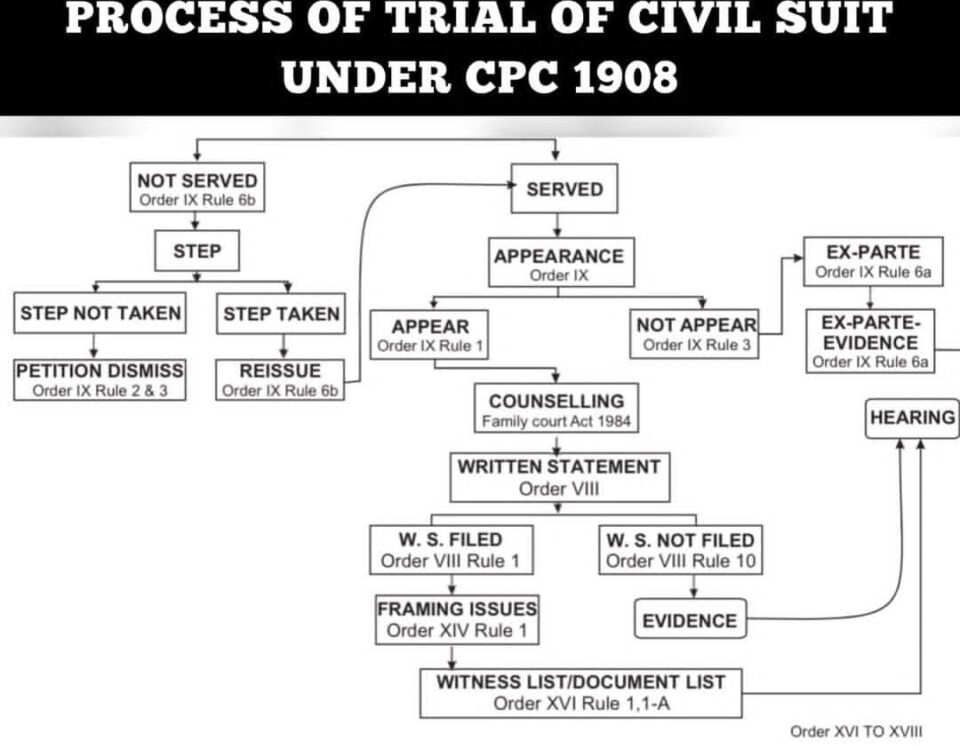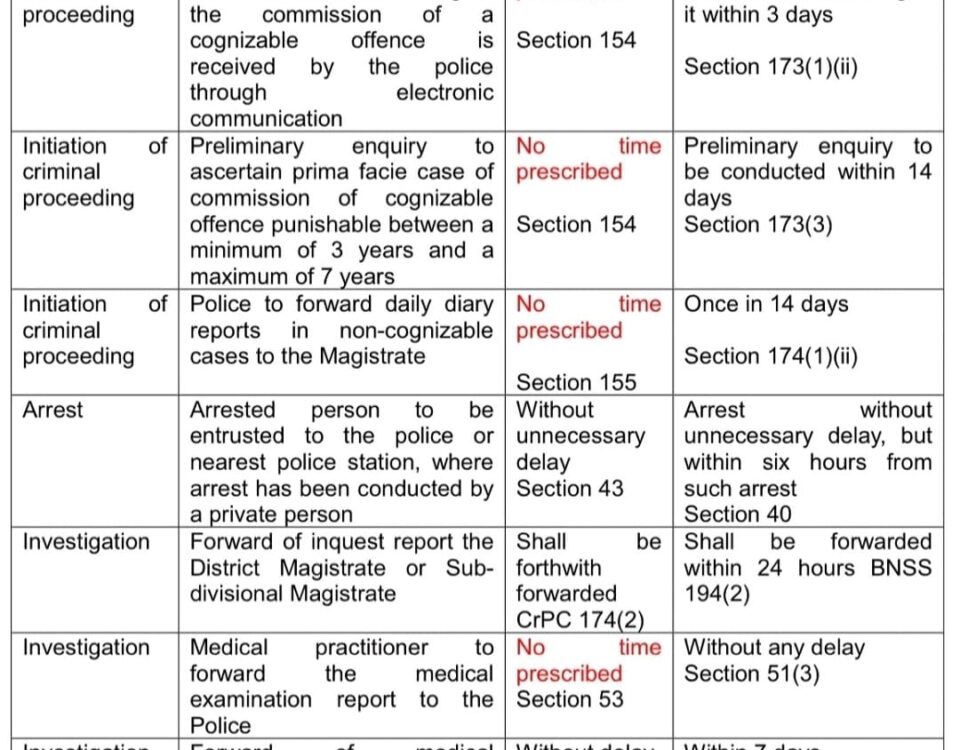
Lawyer in Ghaziabad is a leading law firm with its presence in India and abroad, operating out of offices in: Delhi, Noida and Ghaziabad. It is one of the best law firms in Delhi, Noida and Ghaziabad with an exceptional experience and reputation in the legal arena.
- Legal Consultation
- Transparent Communication
- Results-Oriented
Insurance Cases Lawyer In Ghaziabad:
Experienced Insurance Cases Lawyer in Ghaziabad
Experienced Insurance Cases Lawyer in Ghaziabad
Your Trusted Ally in Insurance Disputes
Insurance complaints are grievances expressed by policyholders when they feel dissatisfied with the services provided by their insurance company. These complaints often stem from issues such as delays in claim processing, wrongful rejection of claims, misrepresentation of policy terms, or inadequate customer service. Policyholders expect transparency, fairness, and efficiency in handling their claims and policies. When these expectations are not met, they turn to the complaint process as a way to seek resolution. Common complaints include claims being denied due to unclear or undisclosed exclusions, delayed settlements causing financial strain, and misleading information during the sale of policies. Poor communication from insurers, such as failure to provide updates or clarify policy details, also contributes to grievances. Insurance companies are obligated to handle complaints responsibly and fairly. Most insurers have dedicated grievance redressal systems in place, ensuring that complaints are addressed within a specific timeframe. Additionally, regulatory authorities monitor and enforce compliance with these obligations, offering policyholders a platform to escalate unresolved issues. Filing an insurance complaint is an important tool for policyholders to protect their rights and ensure accountability. By raising valid concerns, they encourage insurers to improve their services and maintain customer trust.
Common Types of Insurance Complaints
Insurance complaints are diverse, but certain issues are more prevalent than others. One of the most frequent grievances revolves around delayed claim processing. Policyholders often experience frustration when their claims are not settled promptly, particularly in situations that demand urgency, such as medical emergencies or vehicle accidents. Lengthy processing times not only cause inconvenience but can also lead to financial strain for policyholders who rely on insurance for immediate support. Another common complaint involves claim rejection without adequate explanation. Policyholders often report dissatisfaction when their claims are denied with unclear or insufficient justification. This lack of transparency leaves customers feeling helpless and mistrustful of their insurer. Misrepresentation of policy terms is another significant concern. At the time of purchase, some customers allege they were not adequately informed about exclusions, deductibles, waiting periods, or other critical details. This can lead to unpleasant surprises when they attempt to file claims, only to discover that their situation is not covered. Poor communication and unresponsive customer service also contribute to numerous complaints. Customers often report long wait times, unanswered queries, or a lack of clear guidance during the claims process. Errors in premium calculations, billing, or policy renewals further add to customer dissatisfaction, creating additional hurdles in their relationship with the insurer. These recurring issues highlight the importance of insurers maintaining transparency, efficiency, and customer-centric practices. By addressing these common concerns, insurance companies can foster trust and loyalty among their policyholders. Policyholders, on the other hand, can reduce the likelihood of disputes by thoroughly understanding their policies and maintaining clear communication with their insurer. Ultimately, identifying and resolving these frequent issues is key to improving customer satisfaction and the overall insurance experience.
How to File an Insurance Complaint
Filing an insurance complaint requires a clear and organized approach. Begin by identifying the specific issue you’re facing and collecting all relevant documents, such as your policy agreement, claim rejection letter, and any communication with the insurer. Contact the insurance company’s customer service department to explain your grievance clearly, providing all necessary details. Most insurers have a grievance redressal system in place, so request a complaint reference number to track the progress. If the issue is not resolved, escalate it to the grievance officer or approach the insurance ombudsman or a regulatory body. Throughout the process, maintain a record of all communications and documents to strengthen your case and ensure a smoother resolution.
Key Steps:
- Collect all relevant documents, including the policy agreement and rejection letter.
- Contact the insurer’s customer service and request a complaint reference number.
- Escalate unresolved issues to the grievance officer or ombudsman.
- Keep a record of all communications and supporting documents.
What to Do If Your Complaint Is Ignored
If your insurance company fails to address your complaint or provides an unsatisfactory resolution, you have several options to ensure your grievance is heard. The first step is to escalate the matter to the insurance ombudsman. The ombudsman is an independent authority that helps resolve disputes between policyholders and insurers in a fair, impartial, and cost-effective manner. To file a complaint with the ombudsman, you need to submit a written application along with relevant documents, such as the policy agreement, rejection letter, and any correspondence with the insurer. The ombudsman reviews the case and provides a resolution within a specified timeframe, ensuring that policyholders receive justice. Another option is to approach the Insurance Regulatory and Development Authority (IRDA) or its equivalent regulatory authority in your country. IRDA oversees insurance companies and ensures they comply with industry regulations. You can file your complaint through their official grievance portal or helpline, providing all necessary evidence to support your case. If these avenues fail to resolve the issue, you can take the matter to a consumer court. Consumer courts handle disputes where policyholders feel they have been treated unfairly or suffered financial losses due to the insurer’s actions. While this process can be time-consuming, it ensures a legal resolution and may include compensation if the verdict is in your favor. To strengthen your case at every stage, maintain detailed records of all communications with the insurer, including emails, phone call logs, and written correspondence. Awareness of these options empowers policyholders to hold insurance companies accountable and ensures fair treatment in case of grievances. By taking timely action and escalating unresolved issues, you can protect your rights and achieve a satisfactory resolution.
The Role of the Insurance Ombudsman
The insurance ombudsman serves as an impartial authority dedicated to resolving disputes between policyholders and insurance companies. This mechanism is designed to provide a cost-free and efficient alternative to lengthy legal proceedings, making it especially helpful for individuals who lack the resources for court battles. The ombudsman primarily handles complaints related to delayed claim settlements, wrongful rejection of claims, policy misrepresentation, or discrepancies in premium calculations. Before approaching the ombudsman, the policyholder must attempt to resolve the issue directly with the insurer. If the matter remains unresolved, the policyholder can file a written complaint with the ombudsman, providing necessary documents such as the policy agreement and correspondence with the insurer. The ombudsman thoroughly reviews the case, examines the evidence, and mediates between both parties. The decision made by the ombudsman is binding on the insurance company but not on the policyholder, who retains the option to seek further legal recourse if dissatisfied. This process ensures that policyholders receive a fair hearing and a timely resolution without incurring additional costs. By bridging the gap between insurers and policyholders, the ombudsman fosters trust and accountability in the insurance industry.
Key Features of the Insurance Ombudsman:
- Handles complaints like delayed settlements, wrongful rejections, or policy misrepresentation.
- Provides a cost-free and time-efficient dispute resolution process.
- Requires the policyholder to first try resolving the issue with the insurer.
- Makes decisions that are binding on the insurer but not on the policyholder.
- Acts as a neutral mediator, ensuring fair treatment for policyholders.
Why Insurance Complaints Matter
Insurance complaints play a crucial role in shaping the insurance sector while ensuring fair treatment for individual policyholders. When policyholders raise grievances, they hold insurance companies accountable for their actions, compelling them to maintain transparency and improve customer service. This accountability creates a system where insurers are encouraged to act in good faith, ensuring their services meet policyholders’ expectations. Complaints also serve as a valuable source of feedback for insurance companies. By identifying recurring issues such as claim delays, poor communication, or unclear policy terms, insurers can address inefficiencies and improve their processes and policies to better serve their customers. Regulatory authorities also rely on insurance complaints as a tool to monitor the industry. By analyzing trends in complaints, these authorities can identify companies that consistently fail to meet standards and enforce corrective measures. High volumes of unresolved complaints may result in regulatory penalties, legal action, or damage to an insurer’s reputation, incentivizing companies to resolve disputes efficiently. Furthermore, addressing complaints contributes to building trust between insurers and policyholders, fostering long-term relationships. For policyholders, filing complaints ensures their voices are heard, giving them an opportunity to seek justice and recover their financial losses. On a broader scale, insurance complaints act as a feedback loop, improving industry practices, protecting consumer rights, and fostering a culture of accountability. By addressing grievances fairly and transparently, insurers can demonstrate their commitment to ethical business practices, ultimately benefiting both customers and the industry. This makes insurance complaints a vital mechanism for maintaining fairness, integrity, and trust in the insurance ecosystem.

Tips for Resolving Insurance Complaints Quickly
Resolving insurance complaints efficiently requires a proactive approach. First, ensure you understand your policy thoroughly before filing a complaint. This helps you identify legitimate issues and present your case clearly. When contacting the insurer, be polite but assertive, and explain your grievance with supporting evidence. Always keep records of conversations, emails, and documents exchanged during the process. If the issue remains unresolved, escalate it promptly instead of waiting indefinitely. Knowing your rights as a policyholder and the procedures for filing complaints with regulatory authorities can also speed up the resolution process.
Key Tips for Resolving Insurance Complaints Quickly:
- Understand the Policy: Familiarize yourself with your policy terms and conditions to address valid issues effectively.
- Communicate Clearly: Provide a concise and well-documented explanation of your complaint.
- Be Polite but Persistent: Approach the insurer courteously while firmly pursuing your grievance.
- Keep Records: Maintain detailed documentation of all communications and transactions for reference.
- Escalate When Necessary: Contact the insurer’s grievance redressal system or the ombudsman if the issue persists.
- Know Your Rights: Stay informed about consumer protection laws and procedures to strengthen your case.
Legal Rights of Policyholders in Insurance Complaints
Policyholders are protected by a range of legal rights that empower them to challenge unfair practices and seek justice in cases of insurance grievances. One fundamental right is the entitlement to a written explanation for claim rejections. Insurers are legally obligated to provide detailed reasons for denying a claim, enabling policyholders to understand the grounds for the decision and take corrective actions if needed. Policyholders also have the right to challenge misrepresentations of policy terms. If an insurer fails to disclose critical exclusions or presents misleading information during the sale of a policy, the policyholder can demand rectification and, in some cases, compensation for damages caused by such negligence. Regulatory authorities like the Insurance Regulatory and Development Authority (IRDA) ensure that policyholders are treated fairly. For instance, insurers are required to address complaints within a specified timeframe, failing which they may face penalties. This rule prevents delays and holds insurance companies accountable for prompt resolutions. Policyholders also have the right to escalate their grievances to independent bodies such as the insurance ombudsman, which provides free and impartial dispute resolution. For more severe or unresolved disputes, policyholders can approach consumer courts. These courts offer legal redressal for grievances involving financial loss, emotional distress, or breach of contract. Additionally, policyholders are protected under consumer protection laws, which safeguard their interests and ensure fair practices within the insurance industry. By knowing and exercising these legal rights, policyholders can confidently address issues such as wrongful claim denials, delays, or misrepresentation, ensuring accountability from insurers and protecting their financial well-being.
The Impact of Technology on Insurance Complaint Resolution
Technology is transforming how insurance complaints are handled, making the process faster and more transparent. Many insurers now offer online grievance redressal platforms where policyholders can submit complaints, track their status, and receive updates in real time. Artificial intelligence (AI) is being used to analyze complaints, identify patterns, and provide faster resolutions. Mobile apps also allow customers to interact with insurers more conveniently, reducing delays caused by traditional communication methods. These advancements are helping insurers address complaints more efficiently and improve customer satisfaction.
Insurance Rejections
Insurance rejections occur when an insurance company declines a claim submitted by a policyholder. This can happen due to various reasons, such as failure to comply with policy terms, missing documentation, or specific exclusions mentioned in the policy. For instance, a health insurance claim may be rejected if the treatment falls outside the policy’s coverage, or a car insurance claim could be denied if the policyholder didn’t report the accident on time. Additionally, insurance claims may be rejected due to discrepancies in the information provided during the application or claim submission process. Any mismatch in details, such as the insured person’s name or vehicle information, can lead to denial. Policy lapses, caused by non-payment of premiums, are another common reason. Claims may also be rejected if the damage or loss is determined to be a result of negligence or intentional acts by the policyholder. Delayed communication with the insurer or failure to provide necessary documents like medical bills, repair receipts, or accident reports can further complicate the process. To avoid rejection, policyholders must thoroughly review their policy documents, understand coverage limits and exclusions, and follow the claims process carefully. Proactive steps and accurate record-keeping ensure a smoother claims experience.
Common Reasons for Insurance Claim Rejections
One of the most frequent reasons for claim rejection is incomplete documentation. Insurance companies require accurate and detailed paperwork to validate a claim. Missing critical documents like medical reports, invoices, or photographs of damages can lead to denials. Proper documentation is the foundation of a successful claim, and policyholders should ensure they retain and submit all required records promptly. Additionally, another significant reason for claim rejection is policy exclusions. Every insurance policy has specific terms and conditions that exclude certain scenarios from coverage. For instance, pre-existing medical conditions, damages caused by natural wear and tear, or losses due to negligence may not be covered under the policy. It is essential to thoroughly read and understand the policy’s exclusions to avoid surprises during the claim process. Delayed filing of claims is another common issue that can lead to rejections. Most insurance companies have a strict timeframe within which claims must be reported, often ranging from a few days to a few weeks. Failing to adhere to this timeline can result in denial, even if the claim is otherwise valid. To ensure timely reporting, policyholders should familiarize themselves with the claims procedure and act swiftly in the event of an incident. Misrepresentation of facts, whether intentional or accidental, is also a major reason for claim rejection. Providing inaccurate details, such as understating health issues or exaggerating the extent of damage, can jeopardize the claim. Insurers verify the information provided during the claim process, and any discrepancies can lead to denial. It is crucial to provide truthful and accurate information both at the time of purchasing the policy and during the claims process to avoid complications. Another overlooked reason for claim rejection is policy lapses. Failing to pay premiums on time can result in the policy becoming inactive, rendering any claims made during this period invalid. Regularly reviewing policy renewal dates and ensuring timely payments is essential to maintain coverage. Finally, a lack of understanding of policy terms and conditions can often lead to unintentional errors during the claim process. Being proactive, keeping detailed records, and seeking clarification from the insurer when needed can significantly reduce the risk of claim rejection, ensuring a smoother and more efficient experience.
Steps to Avoid Insurance Claim Rejections
Avoiding insurance claim rejections requires a proactive approach, starting with a thorough understanding of your policy. Many rejections occur because policyholders are unaware of exclusions, coverage limits, or terms outlined in the fine print. Familiarizing yourself with details such as exclusions for pre-existing medical conditions, damages caused by negligence, or claims arising from illegal activities helps set realistic expectations and ensures compliance with policy requirements. Accurate and complete documentation is equally crucial. Missing paperwork like medical records, invoices, repair estimates, or photographs of damages can result in delays or outright denials. Keeping your records organized and ready for submission can help expedite the claims process. Filing claims promptly is another vital step, as insurers typically have strict timelines for reporting incidents. Delayed claims may be interpreted as negligence, even if valid. Ensuring timely premium payments is also important to keep your policy active. Claims made during a lapsed policy period will be automatically rejected. Setting reminders or opting for automatic payments can help maintain uninterrupted coverage. Honesty is paramount in dealing with insurers; misrepresentation of facts can lead to permanent rejection or legal action. Open communication with your insurer is equally valuable for seeking guidance, clarifications, or updates to avoid misunderstandings.
Key Tips to Avoid Rejections:
- Understand your policy’s terms, conditions, and exclusions.
- Submit complete, accurate, and organized documentation.
- Report claims promptly within the specified timelines.
- Keep your policy active by paying premiums on time.
- Be truthful and maintain clear communication with your insurer.
What to Do After an Insurance Claim Rejection
If your claim is rejected, the first step is to carefully review the rejection letter sent by the insurance company. This letter typically outlines the reasons for denial, which can range from incomplete documentation to specific policy exclusions. Understanding the exact reason is critical for determining your next steps. Once you identify the issue, contact the insurance company for clarification. In some cases, the rejection may be due to minor oversights, such as missing documentation, incorrect details, or misunderstandings about the policy coverage. Politely ask the insurer if submitting additional evidence or corrected information could help resolve the matter. For instance, providing missing medical reports, invoices, or photographs of damages may lead to a successful reconsideration. If the rejection stands despite your efforts to correct errors, you have the right to file an appeal. Most insurance companies have a formal appeal process that involves submitting a written request along with supporting documents to have your claim reviewed again. Be sure to adhere to any deadlines or requirements set by the insurer to increase your chances of success. In cases where the appeal is also denied, you can escalate the matter to an insurance ombudsman or a regulatory authority. These independent bodies are responsible for resolving disputes between insurers and policyholders. They can help ensure that your case is reviewed fairly and impartially. Throughout the process, keep records of all communication with the insurer, including emails, phone calls, and submitted documents. This documentation will be valuable if you need to escalate the matter further. By staying calm, persistent, and informed, you can navigate the claims process effectively and improve your chances of overturning a rejected claim.
Types of Insurance and Their Common Claim Rejection Reasons
Rejections vary depending on the type of insurance and the specific circumstances of each claim. In health insurance, one of the most common reasons for claim denial is the non-disclosure of pre-existing medical conditions during the application process. Additionally, claims may be rejected if the treatment sought is not covered by the policy, such as experimental procedures or cosmetic surgeries. Exceeding the sum insured or failing to adhere to policy terms, such as obtaining prior authorization for certain treatments, can also lead to rejection. For car insurance, late reporting of accidents is a frequent reason for claim denial. Many insurers require incidents to be reported within a specific timeframe, and failure to do so can void the claim. Claims are also rejected if the driver was found to be under the influence of alcohol or drugs at the time of the accident or if the vehicle was being used for purposes not covered under the policy, such as commercial use for a private vehicle. Life insurance claims may face rejection if the policyholder provided false or incomplete information during the application process. For example, failing to disclose a medical condition or risky lifestyle habits, such as smoking, can result in denial. Policies that have lapsed due to non-payment of premiums are also ineligible for claims.
The Role of Documentation in Claims Approval
Proper documentation plays a pivotal role in the approval of insurance claims. It serves as the foundation upon which insurers validate the legitimacy and accuracy of a claim. In health insurance claims, crucial documents include discharge summaries, doctor’s prescriptions, medical bills, diagnostic reports, and hospital invoices. Missing any of these can delay or lead to the outright rejection of the claim. Ensuring these documents are accurate and complete can significantly streamline the claims process. For car insurance claims, the required documentation typically includes photographs of the accident, a police report for major incidents, repair estimates from authorized garages, and a copy of the vehicle registration. Additional evidence, such as witness statements or dashcam footage, can further support your claim. Failing to provide these documents promptly can lead to unnecessary complications or denial of the claim. Property insurance claims require proof of ownership, photographs of the damaged property, repair invoices, and a detailed account of the incident. For example, in cases of theft, a police report is essential, while for natural disasters, evidence of the damage caused by the event is critical. Without these supporting documents, the insurer may be unable to validate the claim, resulting in rejection. Missing even a single required document can cause delays, disputes, or outright denials. To avoid such issues, it’s crucial to review the insurer’s documentation requirements beforehand and keep all relevant records organized. Maintaining clear communication with your insurer about the required paperwork can also help ensure that nothing is overlooked. Having proper documentation ready before filing a claim is one of the simplest yet most effective ways to ensure timely and successful claim approvals, saving both time and effort during stressful situations.
Why Timely Filing of Claims Is Critical
Timely filing of claims is a critical aspect of ensuring that your insurance claim is processed and approved without complications. Insurance policies generally have specific timelines within which claims must be reported and filed. For example, in car insurance, a claim for an accident is typically required to be reported within 24 to 48 hours. In health insurance, claims should ideally be filed immediately after treatment concludes or within a few days, depending on the policy’s terms. Similarly, property insurance claims must be reported as soon as the damage occurs or is discovered. Failing to adhere to these timelines can result in outright rejection of the claim, regardless of its validity. Insurers often interpret delays as negligence, a lack of seriousness, or even an attempt to manipulate the claim. This is because timely reporting allows insurers to investigate the incident promptly, verify the facts, and assess the extent of the damage or loss accurately. Delayed claims, on the other hand, may raise questions about the authenticity of the incident, making the insurer less likely to approve the claim. To avoid such situations, it’s important to inform your insurer immediately after an incident occurs. Many insurance companies offer 24/7 helplines, mobile apps, or online portals to make reporting convenient. Documenting the incident at the earliest opportunity, including taking photographs, collecting witness accounts, and obtaining relevant reports, can further support your claim. Submitting all required documents without delay is equally important. Even if the initial claim is reported on time, delays in submitting supporting evidence, such as repair estimates or medical bills, can hinder the process. By acting promptly, you not only increase your chances of claim approval but also save yourself the stress and frustration of dealing with disputes or rejections. Being proactive and adhering to timelines ensures a smoother and faster claims process.
How to Appeal a Rejected Insurance Claim
If your insurance claim is rejected, you have the right to appeal the decision. The first step is to carefully review the rejection letter provided by the insurer. This letter outlines the specific reasons for denial, such as missing documents, non-compliance with policy terms, or exclusions under the policy. Understanding these reasons is essential to determine how to address the issue effectively. Once you identify the problem, gather any additional supporting documents needed to strengthen your case. For example, if your health insurance claim was denied due to incomplete medical records, ensure you obtain and submit the missing documents, such as discharge summaries, diagnostic reports, or prescriptions. For car insurance, additional evidence like accident photographs, police reports, or repair estimates can help. Next, write a formal appeal letter to your insurance company. Clearly explain why you believe the rejection was unjustified, referencing the terms of your policy and attaching all relevant evidence. Keep your tone professional and factual, and ensure the letter is submitted within the timeframe specified for appeals. If your appeal is denied, you have the option to escalate the matter further. Contact the insurance ombudsman, an independent authority that resolves disputes between policyholders and insurers. The ombudsman will review your case impartially and work toward a fair resolution. To strengthen your case, provide all correspondence with the insurer, including rejection letters, appeal letters, and any supporting documents. Throughout the process, maintain detailed records of all communications, including emails, phone calls, and submitted documents. These records can be invaluable if the case needs to be taken to a regulatory authority or a legal forum. By staying informed, organized, and persistent, you can improve your chances of overturning a rejected claim and securing the benefits you are entitled to under your policy.
Legal Rights Against Unfair Insurance Rejections
Policyholders have legal rights designed to protect them against unfair claim rejections by insurance companies. If your claim has been wrongfully denied, you are entitled to seek recourse through established legal mechanisms to ensure fairness. The first step is to approach the insurance ombudsman, an independent authority responsible for resolving disputes between insurers and policyholders. The ombudsman provides a cost-free, impartial platform to review your case. To strengthen your complaint, ensure you provide all relevant documents, such as the rejection letter, a copy of your insurance policy, and any correspondence exchanged with the insurer. Clearly explain why you believe the claim rejection was unjustified and present any supporting evidence to validate your claim. If the ombudsman’s decision is not in your favor or the insurer refuses to cooperate, you can escalate the matter to a consumer forum. Consumer forums are judicial bodies specifically set up to protect the rights of consumers, including policyholders. Filing a complaint with a consumer forum requires proper documentation and a clear statement of your grievance, along with the desired resolution. In cases where the dispute remains unresolved or involves significant financial loss, you have the option to seek legal assistance and take the matter to court. While this is often a time-consuming and costly process, it may be necessary for cases involving substantial claims or clear evidence of malpractice by the insurer. Legal representation can help present your case effectively and ensure that your rights are upheld. Throughout this process, maintaining detailed records is critical. Keep copies of all communication with the insurer, supporting documents, and any responses received. This evidence can significantly bolster your case in legal proceedings. By leveraging these legal rights and staying persistent, policyholders can ensure they are treated fairly and receive the benefits they are entitled to under their insurance policies.
Conclusion
Insurance claim rejections can be both stressful and frustrating, but they are often avoidable with the right knowledge and preparation. The key to reducing the likelihood of rejection lies in thoroughly understanding your policy. Familiarize yourself with its terms, conditions, coverage limits, and exclusions to avoid unpleasant surprises when filing a claim. Accurate documentation is equally critical. Missing or incomplete paperwork is one of the most common reasons for claim denials, so ensure all required documents are collected and submitted promptly. Filing claims within the specified timeline is another essential step, as delays can often lead to rejections, regardless of the claim's validity. If your claim is rejected, don’t lose hope. Carefully review the reasons outlined in the rejection letter, gather additional evidence to address the issues, and file an appeal with the insurer. If necessary, escalate the matter to the insurance ombudsman or a consumer forum to ensure a fair resolution. Policyholders also have legal rights to challenge unjust denials, which can be pursued if all other options fail. By being proactive, organized, and informed, you can not only avoid common pitfalls but also navigate the claims process effectively. This preparedness helps protect you from the financial and emotional impact of insurance claim rejections, ensuring you get the coverage and support you deserve.





